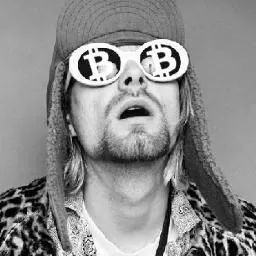Venezuela's Hydrocarbons Law prevents the use of natural resources such as oil as a guarantee, according to economist José Guerra.
The hyperinflation in Venezuela, which in 2017 exceeded the accumulated 2.735%, according to the Ecoanalítica consultancy, has caused that its currency, the bolivar, has sunk. "It is liquidated," the economist and president of the Finance Committee of the National Assembly, José Guerra, tells ABC. This has forced both the Government of Nicolás Maduro and civil society to seek alternative solutions, such as the creation of new currencies, which allows them to carry out economic transactions.
This is how the Bolivarian Executive has decided to join the fashion of cryptocurrencies (bitcoin) with the creation of petro. The objective of Maduro with this new currency is to pay its international suppliers and settle the supply crisis, as announced a few days ago the Minister of Communication and Information of Venezuela, Jorge Rodríguez.
The virtual currency will be backed by assets such as Venezuela's oil, gold and diamond reserves. Rodriguez himself referred to the oil field of Ayacucho, with a reserve of 5,342 million barrels valued at 267,000 million dollars, as endorsement of the petro. However, this governmental decision would not be legal. "The cryptocurrency can not be issued with oil reserves as a guarantee. Article 3 of the Organic Law of Hydrocarbons of Venezuela establishes that oil reserves not exploited, that is to say, those that are in the subsoil and that are very abundant, can not be placed as a guarantee of any commercial or financial operation ", explains Guerra .
Economic war
President Maduro has presented the petro as a lifeline to the "economic war" that the country suffers from capitalism. With it "it will be materially impossible for the dictatorial financial centers of the world to intervene against this initiative" of the Venezuelan Government, augura Rodríguez.
But the petro is born with scales very different from those of bitcoin. "While this cryptocurrency has been created within a framework of great freedom and trust," in Venezuela "there are no such attributes," War emphasizes. «In 2003 Hugo Chávez implemented currency exchange control to curb inflation and capital flight, so in Venezuela there is no freedom of trade. If you want to buy cryptocurrencies and then want to change them to recover the original currency, you will not be able to because there is exchange control. The Government establishes the amount of dollars that can be taken out of the country, and now you can not get any, unless it is done on the black market. "
Birth of the "honeycomb"
To the creation of the petro has also been added the "honeycomb", a coin, this one on paper, born in the neighborhood January 23, in Caracas, by the Chavista collective Fuerza Patriótica Alexis Vive (FPAV). "In principle it is a currency that is going to be limited to the local area, it will not be able to circulate outside that neighborhood," says Guerra. Its function is therefore very limited "because it will not be accepted as payment to suppliers. I do not see any utility or reason, beyond the strictly local, "adds the Venezuelan economist, who believes that initiatives like this can cause a proliferation of currencies" in all communities that suffer from lack of cash and seek a way to solve it by printing your own currency ». In the case of the honeycomb, it is not backed by the Central Bank, "which is the only one authorized to issue bills and mint coins. Therefore, this is an absolutely illegal act ».
This is not the first time that coins parallel to the Venezuelan bolivar have emerged: "Chávez tried to create some coins in 2008 and 2009, which was called lioza and carried the symbolism of pre-independence Venezuela. Those coins did not do much either. " Now they try to republish them, Guerra explains, but for different reasons: "The lack of cash motivated by hyperinflation. The BCV has not issued the amount of tickets that accompany the price increase. As a result, there is a significant shortage of banknotes that has caused these local currencies to start circulating. I do not see any sense, because this currency will not be able to keep the value in the middle of a picture of hyperinflation. The issuer takes out a certain amount of currency and does not control prices, and the coins are losing their value in the same way, "he explains.
Currency changes
The system of change in Venezuela is one of the "most complicated, complex and corrupt in the world," says Guerra. "There is an exchange rate of 10 bolivars per dollar - for food or medicine - that is handled by the government in total discretion." Then there is the rate of 3,000 bolivars per auction, in which the government decides which are the items that are going to be auctioned. "They gave something like 20 million, which is very little, per week. This has been suspended for several months ». Then there is the parallel market "in which everyone can buy and sell what they want, and the change is in the 100,000 bolivars."
"The best business in the world can be to take those rates, of 10 or 3,000 bolivars and then resell it to 100,000 bolivars. It is the quintessence of corruption, which includes a Spaniard, Alfredo Serrano Mansilla, of Podemos, who is practicing with the Venezuelan economy what the Spaniards would never have accepted, "he says.
Credits: http://www.venezuelaaldia.com/2018/01/02/criptomoneda-rojita-que-quiere-instaurar-el-gobierno-es-ilegal/

For more interesting content, follow my profile. ¡Happy day!

Julitonski